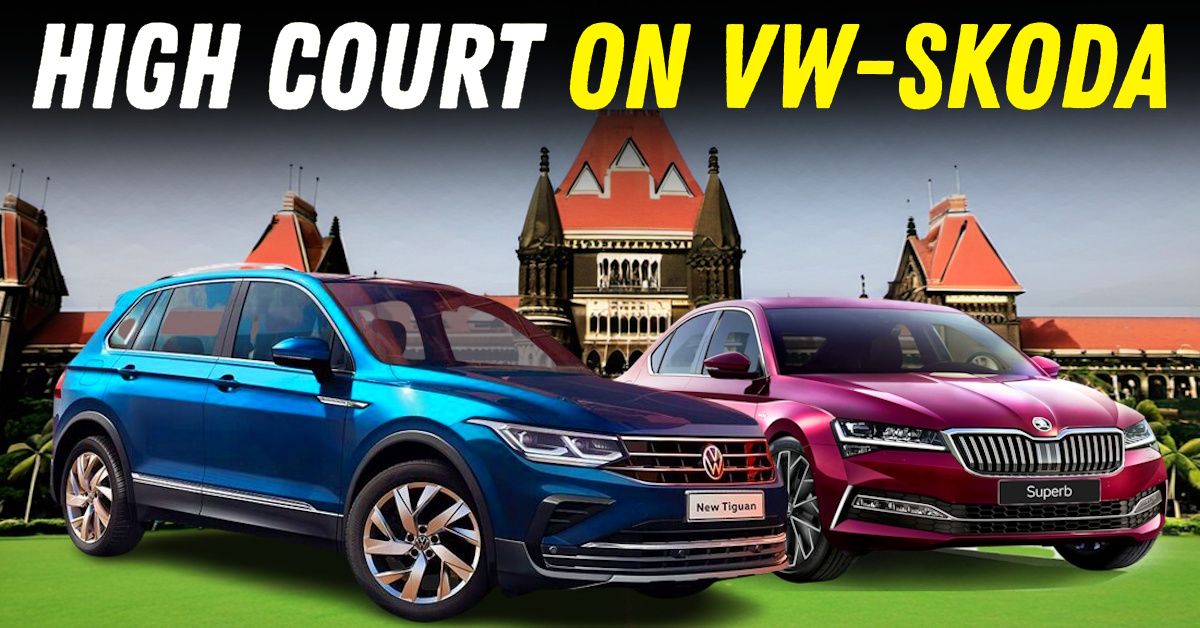High Court 'Not Satisfied' With Skoda-Volkswagen's Arguments In Import Duty Case


The Bombay High Court (HC) on Monday expressed prima facie dissatisfaction with Skoda Auto Volkswagen India’s arguments in its legal battle over the $1.4 billion tax evasion notice issued by the customs department. The notice accuses the carmaker of underpaying import duties on car components over the past 12 years.
A two-judge bench, led by Justice B.P. Colabawalla, voiced concerns over whether Skoda’s plea should be entertained at this stage.
The bench remarked,
Prima facie, we are not satisfied with your argument. It is troubling us whether we should entertain the plea at the stage of the show-cause notice.
The court also commended the customs officer responsible for the investigation, praising his "meticulous work and research" in finding out the discrepancy and issuing the notice.
Skoda Auto- the company that handles Volkswagen Group’s India operations found itself in trouble when it was issued a show-cause notice by the tax department. The allegation was that the company imported Completely Knocked Down Kits- CKDs (deliberately) misinterpreting them as car parts.
This meant that the company had to pay just $981 million in tax. This is because in India, imported car parts are taxed at 15%- significantly lower than the 30-35% duty imposed on imported CKD kits (semi-built cars). In the process, 1.4 billion USD was allegedly evaded. The lawsuit also states that several units of Tiguans, Kodiaqs, Superbs, Audi A4s and A6s were imported in this manner.
The customs department issued a show-cause notice to the carmaker. The alleged malpractice has been going on for the past 12 years. Skoda Auto Volkswagen India Private Limited allegedly used their NADIN software to break down vehicle orders into components and subassemblies.
The High Court bench acknowledged the diligent efforts of the customs officer who carefully reviewed the imported parts and their corresponding identification number (KEN number which is used to track the car model that the parts belong to) to finally find out the discrepancy.
Citing the evasion, the Tax department soon took the carmaker to court, demanding a combined fine of 2.9 Bn USD, and confiscation of the disputed assets. This is the highest penalty India has ever imposed on a carmaker. SAVWIPL made a plea saying that this amount is a matter of life or death for the brand.
As the high-stakes legal battle continued, the Customs Department firmly defended its tax demand. The Additional Solicitor General (ASG) N Venkatraman said that Skoda Auto Volkswagen should take responsibility for its actions and cannot play the victim. He argued that all other importers are paying a 30% duty and further stated that Volkswagen Group should also fall in line.
During the hearing, Additional Solicitor General N. Venkatraman also emphasized that customs officials must be allowed to adjudicate the matter before the court intervenes. He also explained that the delay in issuing the tax notice was due to prolonged information requests from Skoda.
The court acknowledged the thorough work of the customs officer, particularly in reviewing part identification numbers—especially the KEN number, a unique identifier that helps track which car model the parts belong to.
Representing Skoda Auto Volkswagen India, senior counsel Arvind Datar argued that the NADIN software was wrongly interpreted by tax authorities. He explained that the system is only meant for demand tracking and production planning, not for breaking down vehicle orders into separate components to lower tax liability.
Datar also pointed out that a March 2011 notification clearly distinguishes between CKD kits and standalone parts. He argued that this clarification should apply to Skoda’s imports, making the show-cause notice invalid.
The Bombay High Court has not yet ruled on the case but has signaled that Skoda will need to present a stronger argument to justify its plea at this stage. The next hearing is expected to bring further clarity on how the court will proceed with Skoda’s challenge against the tax demand.
Via LawTrend